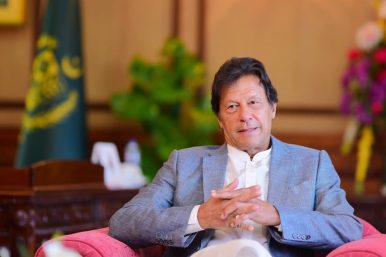By Umair Jamal
Pakistan is expected to receive around $6 billion worth of financial support from the International Monitory Fund (IMF) over the next few weeks. The incoming financial assistance is going to be one of the toughest financial packages that the country has ever obtained, with serious implications for the Pakistan Tehreek-e-Insaaf (PTI) government.
PTI’s government is taking the loan at a time when the party literally has nowhere else to turn for financial support that can match what is being offered by the IMF. Arguably, the country’s prime minister, Imran Khan, is not in complete control of the financial matters of the country for a number of reasons. A lot has changed during the past eight or nine months concerning Khan and his party’s political standing and ability to inspire confidence through smart and efficient policy work. It is undeniable that Khan has lost a lot of space when it comes to making decisions that fall under his jurisdiction, but have implications for other state institutions.
It cannot be said more plainly that Khan’s team has even failed to get the basics right. Khan, in an attempt to avoid the IMF’s financial help, cost Pakistan a vital amount of time that could have allowed much-needed leverage to the current government when it comes to negotiating the terms of a potential agreement with IMF. A government that comes to power with great promises of improving governance structures through efficient policy work, claiming it has the best available team at its disposal, cannot afford to make blunders. Unfortunately, Khan’s team has only inspired confusion and raised questions when it comes to the current government’s ability to govern with clear direction and purpose.
The former finance minister of Pakistan, Asad Umar, should have known better —making impossible commitments amounts to abject failure. Before getting elected, Khan and his economic team should have known their limits when it comes to targeting policies and the role of foreign institutions in Pakistan, which the current government is now being forced to engage with. They could not afford to target an institution like the IMF, which turned out to be essential for their economic survival beyond two to three months’ import bills.
The fact that Khan’s electoral discourse against the IMF program became one of his primary hurdles once in power shows the lack of preparation on the part of the PTI. This lack of preparation has cost Pakistan deeply: had the PTI not run an electoral campaign filled with criticism of the IMF, which ultimately became a narrative, the party would have been able to implement a sensible economic policy immediately after coming to power. Khan needed to fathom that going to the IMF was not a bad thing for Pakistan provided that at the end of an agreement the country comes out better economically.
Arguably, the IMF is in a much better position to dictate the terms of an agreement with Pakistan’s government than it was six to eight months ago. It is expected that the PTI will attract public ire once the financial plan is underway. For the next three years, IMF is going to put in place economic measures that are hardly going to be in the government’s control. Undoubtedly, the expected rise in inflation and unemployment is going to create troubles for Khan’s government
The successful implementation of the IMF program is vital for Pakistan’s overall economic growth to ensure that the country doesn’t require another bailout package after three years. However, the government in Pakistan will have to work hard to implement the IMF’s three-year plan successfully. Khan’s government is likely to survive any political challenge. However, if Khan fails to deliver on the economic front, nothing can stop the party from going into survival mode.

No comments:
Post a Comment